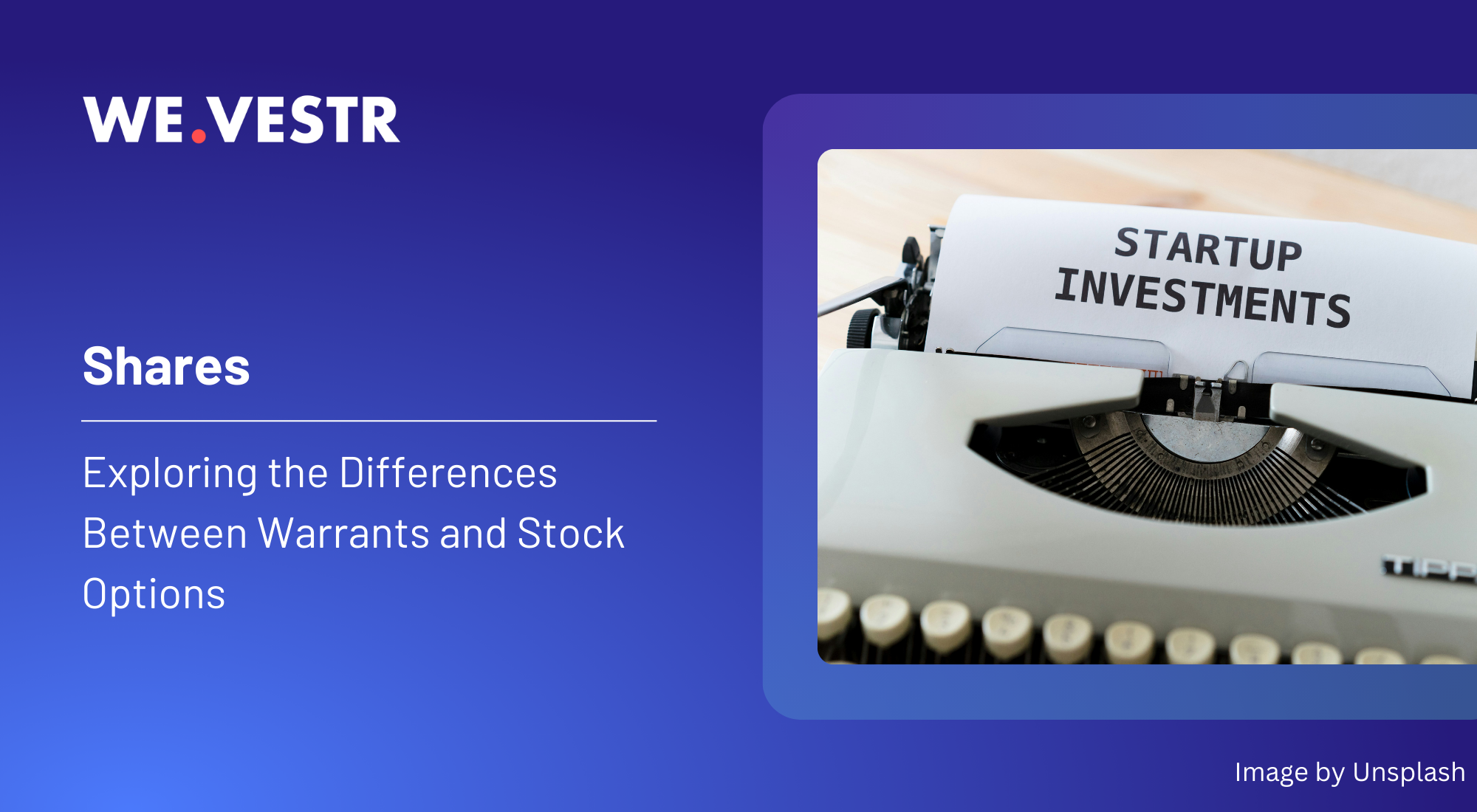Exploring the Differences Between Warrants and Stock Options

As your startup grows, you may encounter the need to issue both warrants and stock options. But what exactly are warrants, and how do they differ from stock options? Let’s delve in and help boost your understanding.
Understanding Warrants:
A warrant is an agreement granting one party the right to buy another party’s stock. They can do so at a predetermined price within a specific time. Once exercised, the warrant holder receives shares of stock in the issuing company. To grasp the fundamentals of warrants, it's essential to grasp four key components:
- Type of Stock: Warrants can be issued for either common or preferred stock. Common stock typically goes to founders and employees, while preferred stock is often reserved for investors. Determining the type of stock for a warrant is crucial, and may impact its terms and implications.
- Exercise Price: Also known as the strike price, this is the pre-established price at which the warrant holder can buy the shares. It can be set at the fair market value (FMV) or a lower price, such as a nominal fee per share.
- Vesting Structure: Warrants may have vesting schedules, which dictate when the holder can exercise their rights. Vesting can be time-based or performance-based, depending on the agreements between parties.
- Term: Every warrant has a specific term, ranging from two to ten years. This period defines when the warrant holder can exercise their rights.
Differentiating Warrants from Stock Options:
Warrants and stock options are similar. They are both rights to buy shares. But, they have different purposes and terms.
- Issuing Parties:
- Stock Options: usually granted to service providers, like employees or advisors, as part of compensation packages.
- Warrants: mostly issued to investors, banks, or third parties in financial transactions.
- Exercise Prices: Stock options usually have exercise prices set at the FMV upon grant. Warrants may have lower exercise prices, often for non-compensatory purposes.
When to Consider Issuing Warrants:
Warrants can be useful in various scenarios, such as:
- Early Financing Rounds: Issuing warrants with convertible notes can motivate investors. It can also help meet ownership requirements without too much dilution.
- Venture Debt Agreements: Banks may request warrants in exchange for favorable loan terms, offering potential future equity as collateral.
- Partnerships: Warrants can facilitate partnerships by sweetening deals or rewarding collaborators for their contributions.
Points to Remember Before Issuing Warrants:
Before proceeding with warrants, consider these factors:
- Effective Vesting: Design a vesting structure that matches your company’s goals. It should provide clarity and motivation for warrant holders.
- Dilution: Be mindful of potential dilution effects on existing shares and ownership percentages.
- Cap Table Management: Incorporate warrants into your cap table and track their impact so you can maintain transparency.
In Conclusion:
Warrants offer benefits in financing and partnerships. But, their structure and use need careful thought. Talking to legal and financial experts can give valuable insights. They can help you optimize the use of warrants to fit your company’s growth strategy and goals.
